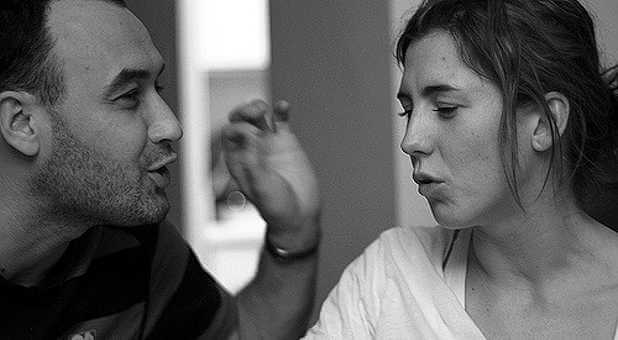The election here in the U.S. is finally over. At least we thought it was. Half the country was disappointed and the other half rejoiced. Democracy happened. But then began the protests. And the riots. And the walkouts.
And all of a sudden we began to wonder—what the heck is going on? Is this really what democracy looks like? Are people really sore losers? Are the winners really gloating like that?
I get it. People have a right to be upset if they “lost” and happy if they “won.” People have a right to protest if they disagree. But it feels like there is something deeper going on that goes far beyond the election. People are in pain and they don’t know what to do about it.
People are increasingly having a lot of trouble with the fact that others think differently than they do. And it’s occurring on both sides of the political spectrum. They can’t understand why anyone would have an opinion that disagrees with theirs and because they can’t understand it, they react in anger instead of acting like adults. People on both sides are frightened and worried and anxious and all that pent-up concern is manifesting itself in emotion and violence. Everyone is fighting to be heard, not realizing that if everyone is screaming, then no one is listening.
Rather than sitting down at the table and engaging in healthy discussion, people would rather resort to pointing the finger and accusation and acts of anarchy. Healthy dialogue and adult conversations are rarely found. If you don’t like what someone thinks or believes, if you don’t like what they stand for, just find an inflammatory title to throw at that person. That will fix it.
When you are convinced that the way you believe is the only way that everyone should believe, you set yourself up for a battle rather than a conversation. And if you lack the correct social and cultural tools to engage in healthy dialogue, you will react out of emotion due to the inability to deal with the pain of feeling misunderstood and unheard.
It’s a good thing that never happens in the church, right? Or does it?
I wish it never happened in the church. But my history would tell me a different story.
I have spent many years traveling to churches all across the world. I have yet to meet a perfect one even, though I have met some amazing people during that time who are genuinely doing amazing things for the kingdom of God.
But over and over again, I notice this strange idea creeping up in the heart of individual churches. It is this strange idea that a particular pastor or a particular movement or a particular church are the only ones with the “real truth.” They have it down. They have the solution to the problem. If everyone just followed the way that they do things, then everything would change.
What’s worse, though, is that if you think differently, you will find yourself subjected to things that are not even remotely “Christian.” Now, it might not always be preached from the pulpit but it certainly manifests itself in the community culture. They love to try to convince everyone that they have it “right.” They get incredulous when others disagree and they can’t understand why everyone else can’t see that they are right.
The way you really discover this underlying philosophy is at work, though, is by watching what happens when the ideology is challenged. Emotions begin to run hot. Defense mechanisms go up. The finger of blame is pointed anywhere but at themselves. Healthy dialogue and adult conversations are replaced with accusations and emotion and manipulation. Backstabbing and undermining suddenly become acceptable behavior to justify the end result which is typically to get the opposition to walk away by any means necessary. Then, self-justification creeps in, absolving anyone of any guilt and allowing the culture to remain intact.
People have a lot of trouble with the fact that others think differently than they do. They can’t understand why and because they can’t understand it, they react instead of trying to understand and working to find a common ground. When you are convinced that the way you believe is the only way that everyone should believe, you set yourself up for a battle rather than a conversation. And, if you lack the correct social and cultural tools to engage in healthy dialogue, you will react out of emotion due to the inability to deal with the pain of feeling unable to communicate your point of view effectively. This will lead to being misunderstood and ultimately unheard. When someone begins to feel like they don’t have a voice, they typically use more emotion to gain attention and the tension escalates and the cycle continues.
We live in a culture, inside the church and outside the church, that is in trouble. We don’t just agreeably disagree anymore, we strongly oppose. We feel that we have the “right” to an opinion, not realizing that a right to be heard is not automatically granted to you, it is earned. Social media and this “instant” culture have created a social dialogue that immediately produces inflammatory arguments that quickly lead to character assassinations within moments. Respect and honor have been long forgotten at the price of “rights” and “prerogatives.”
Everyone is fighting to be heard, not realizing that if everyone is screaming, then no one is listening. If we are going to change this, we need to learn some basic skills both inside and outside the church. I can’t speak to anyone outside the church with authority, but I can to those inside it. I, with utmost respect, submit these thoughts to you.











































